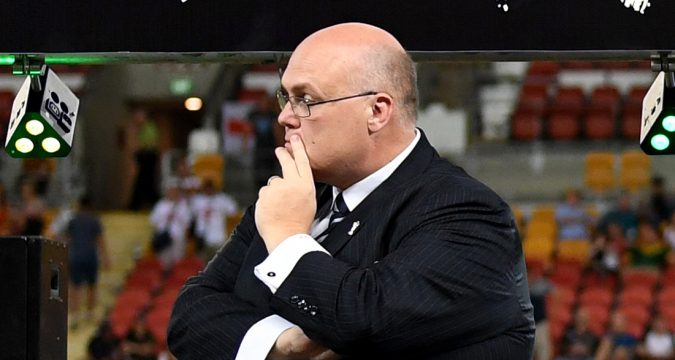 INTERNATIONAL Rugby League chief executive Nigel Wood's vision is of a genuinely open and competitive World Cup being the pinnacle of a busy calendar featuring a meaningful global tournament every year.
The former Rugby Football League chief executive, who has been in his current post since May 2018, sees Nines as a key element of his plan to expa
INTERNATIONAL Rugby League chief executive Nigel Wood's vision is of a genuinely open and competitive World Cup being the pinnacle of a busy calendar featuring a meaningful global tournament every year.
The former Rugby Football League chief executive, who has been in his current post since May 2018, sees Nines as a key element of his plan to expa Wood’s strategic vision for international Rugby League
 INTERNATIONAL Rugby League chief executive Nigel Wood's vision is of a genuinely open and competitive World Cup being the pinnacle of a busy calendar featuring a meaningful global tournament every year.
The former Rugby Football League chief executive, who has been in his current post since May 2018, sees Nines as a key element of his plan to expa
INTERNATIONAL Rugby League chief executive Nigel Wood's vision is of a genuinely open and competitive World Cup being the pinnacle of a busy calendar featuring a meaningful global tournament every year.
The former Rugby Football League chief executive, who has been in his current post since May 2018, sees Nines as a key element of his plan to expa 